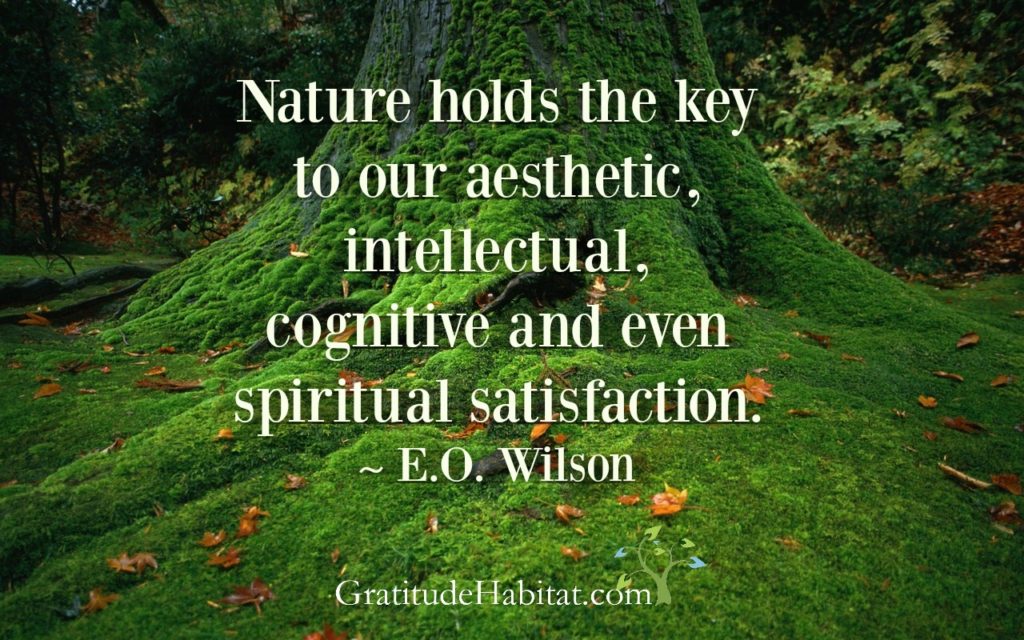Nature holds the key to our aesthetic, intellectual, cognitive and even spiritual satisfaction. ~E. O. Wilson
Scientific studies show that being in nature has an overwhelming influence on our brains and our behavior. Being in nature helps reduce stress, anxiety, and worry while increasing our ability to focus, be creative as well as boosts our ability to connect with others.
“People have been discussing their profound experiences in nature for the last several hundred years—from Thoreau to John Muir to many other writers,” says University of Utah researcher David Strayer. “Now we are seeing changes in the brain and changes in the body that suggest we are physically and mentally more healthy when we are interacting with nature.”

While Strayer and other scientists firmly believe experiencing the flora and fauna of our world benefits our wellbeing, people of all ages tend to spend a substantial amount of time indoors and online. The research on how nature improves our brains calls for spending more time outdoors to increase our health, happiness and creativity.
Below are 5 ways we benefit from being in nature.
-
Decreased stress levels
Studies have shown that people tend to unwind and relax more when they are outside in a natural environment VS an urban one. This holds true whether they are in a forest or city greenspace. These people showed lower heart rates, better moods and less anxiety than those who were exposed to a purely urban environment. Scientists believe that humans are wired to be more relaxed and soothed in natural spaces and our bodies and minds behave positively in these natural environments.
-
Boosts happiness and reduces brooding
A study conducted by Stanford University researcher, Gregory Bratman, showed that the emotional state and cognitive abilities of participants who took a walk in a natural setting were dramatically better than those who walked in an urban area. They reported feeling more positive and less apprehensive, ruminated less and performed better on short-term memory tasks than did the urban walkers. Read more






